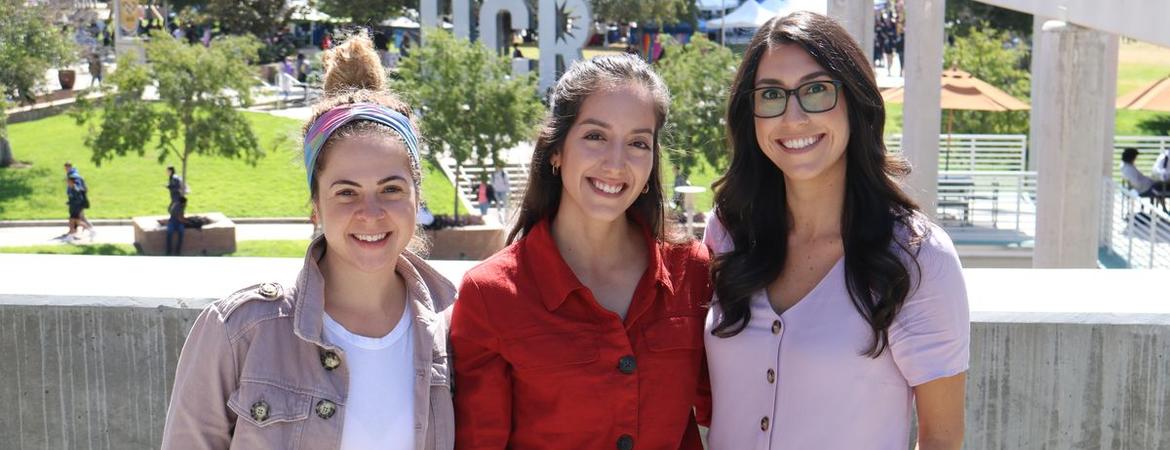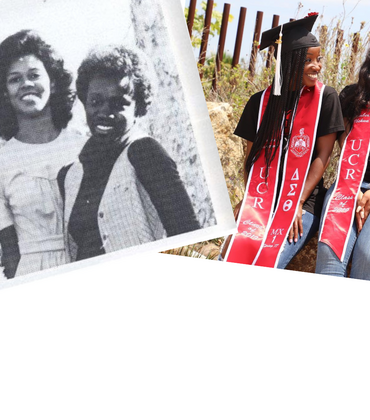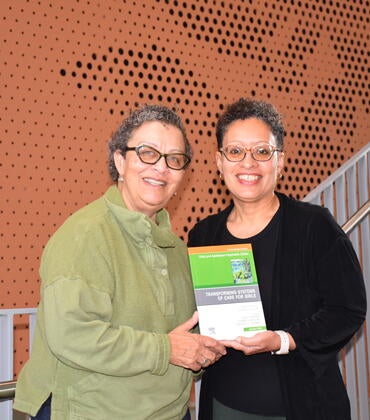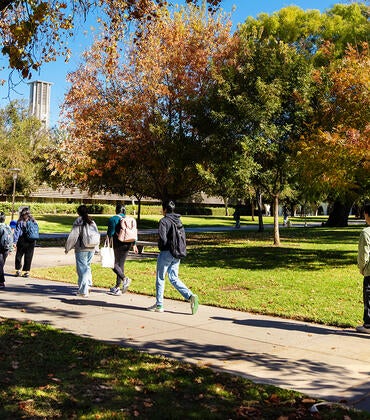
Graduate school can be intense — and at times — isolating.
That’s why four graduate students have created their own nonclinical mental health support network at the University of California, Riverside.
R’Grad Peer Support Group has been meeting for two quarters. The on-campus meetings target three broad categories: mental health, graduate student life, and professional relationships —the most common challenges faced by graduate students, peer group founders said.
These obstacles can arise when students are forced to balance school and work with life transitions such as marriage, babies, aging parents; living on a reduced income; and feelings of isolation due to the amount of time spent conducting research rather than engaging in social activities, said Danielle Cravalho, one of four co-founders.
The graduate student leaders are current doctoral candidates in school psychology, social psychology, and sociology.
“Mental illness means the person is experiencing changes in thinking, emotion, and/or behavior, and presents symptoms that cause significant impairments or problems functioning at work, social, or family activities,” said Cravalho, 28, who also served as the graduate student wellness liaison for The Well, UCR’s nonclinical health promotion center for students. “The pressures of grad school can exacerbate these issues.”
R’Grad Peer Support Group is meant to be a safe space where people can connect, said co-founder Arielle Manganiello, 30, a fourth-year social psychology graduate student.
“This will be students helping students,” said Manganiello, current vice president of external affairs with the Graduate Student Association.
Shaun Bowler, dean of the Graduate Division, applauds the group for creating a support network that complements UCR’s Counseling and Psychological Services, also known as CAPS.
“These days, people are thankfully more willing to talk about and seek help for mental health issues. But the stresses of graduate student life still go underreported and underaddressed,” Bowler said. “Groups such as this one provide invaluable help and support, so I applaud this initiative from our students.”
The graduate students worked for months to research prevalent topics and needed services while tapping into existing programs and resources to avoid any overlap. They also reached out to systemwide allies, including UC Davis and UC Merced, to inquire how their own graduate peer support groups operate.
The group of women also looked for support in curriculum development, and sought advice on how to address confidentiality and find funding for materials, training, and snacks for attendees.
Graduate students at UCR come from across the United States and the globe, meaning many spend long periods of time away from their communities and their families. R’Grad Peer Support Group is meant to help these students find others who share similar experiences, said co-founder Melanie Kushida, 28, a fifth-year sociology doctoral student.
“We want this to be a group where people can feel it’s a place they want to come to,” added co-founder Anacary Ramirez, 24, a third-year school psychology doctorate student. “We want to offer more resources to support each other.”
R’Grad Peer Support Group
Meeting dates: Every Monday
Meeting location and time: HUB 383 from 5-6:30 p.m.
Contact email: well.gsa@ucr.edu



